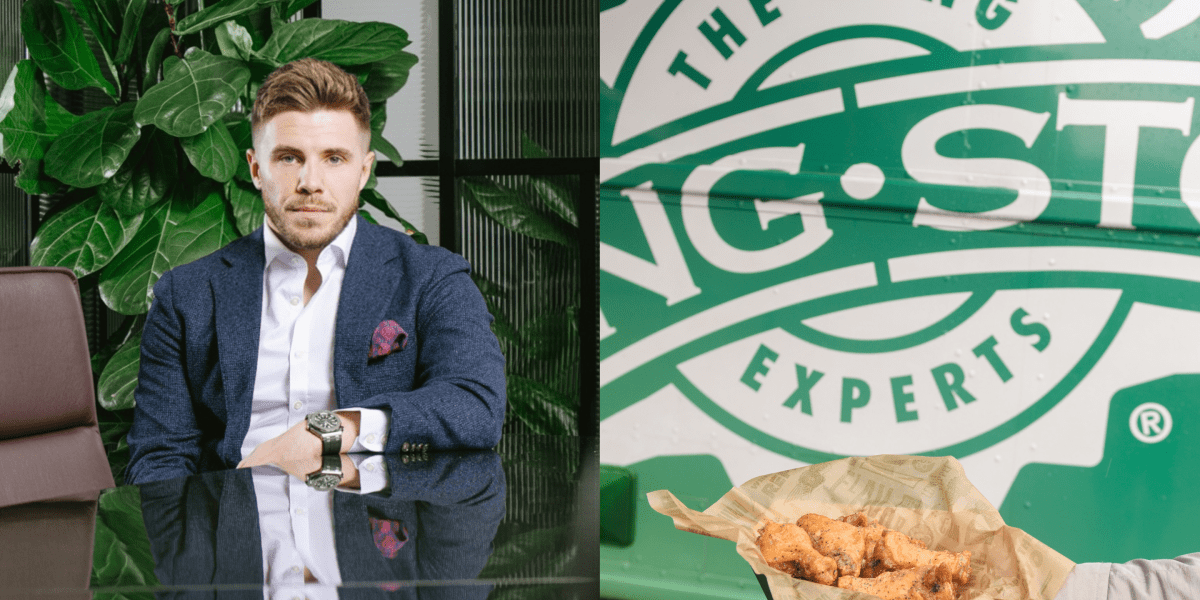
This millennial has a message for anyone who thinks a million-dollar windfall—whether it’s from the sale of their business or the $124 trillion Great Wealth Transfer—will solve all your problems.
If that was the case, Tom Grogan should have been living the dream. After cofounding Wingstop UK and selling a majority stake for £400 million ($532 million), most people would expect him to wake up every day feeling on top of the world. But the reality? Far from it. Wealth didn’t magically make life feel complete.
“For seven years, your whole mind is occupied on making a success of this business,” Grogan exclusively told Fortune.
“It’s all you think about. And then when you get there, it’s just a bit surreal. It’s like, Okay, it’s done now. Now what? And money doesn’t necessarily fill that void either.”
After nearly a decade of building a UK brand from scratch—including one cold email to Texas, 50 investor rejections, and 57 restaurants later—he admits that navigating life after the sale is a whole other challenge.
From $5 an hour builder to multimillionaire sounds like the dream—but this founder says ‘it’s boring’
While Grogan’s rise from a construction worker to a founder (all in his 20s) was meteoric, the transition from entrepreneur to multimillionaire has been… unexpectedly slow-paced, he admitted.
“You have to now change your head from we’re not business building anymore. We’ve gone from being an entrepreneur to managing money—and they’re two different skill sets,” he said. “So we have to discover the world of financial instruments, stocks, bonds—all of that stuff that’s all new to us, but we’re being strategically careful.”
Instead of rushing to buy a mansion or a fleet of fast cars, Grogan added that he’s still renting. And along with his cofounders Herman Sahota and Saul Lewin, the trio gave the first half of this year to sit back and start thinking about what they want to do next.
But one thing is for sure: He won’t be resting on his laurels, enjoying the fruits of his labour and riding off into the sunset any time soon.
“It’s boring,” Grogan adds. “I can’t live life sat on a beach. I think we need something to occupy our minds, to challenge ourselves. You need a purpose every day to wake up for, which we don’t have right now.”
It’s why he’s already planning to get back to the grind—he doesn’t know what his next venture will be, “but it probably won’t be in the world of food and beverages.”
Brian Chesky called the Airbnb IPO ‘one of the saddest periods’ of his life
Grogan isn’t alone in feeling the emptiness that can follow a massive milestone. Years of relentless focus and sweat poured into a single venture can leave a strange void when it’s suddenly past the finish line.
In fact, Brian Chesky cofounder and CEO of Airbnb, previously admitted that his company’s IPO—despite making him a billionaire—was “one of the saddest periods” of his life.
Growing up, Chesky admits he “desperately wanted to be successful” because he thought it would bring him adoration. Plus, having social worker parents who were by no standards rich, he also thought a large sum of money could “solve every problem.”
“I had this image that if I got successful I’d have all these people around me, all these friends, I’d have all this love, all this everything, and my life would be fixed,” he told Armchair Expert podcast.
But actually, when Airbnb hit that $100 billion valuation and “everyone in high school” knew what he did, he was lonelier than ever, having poured all his energy into his work for up to 18 hours a day.
“At the bottom of the mountain, you have hope,” he concludes of his journey from scrappy start-up founder to billionaire. “But the problem is when you get to the top of the mountain oftentimes you are at the top by yourself, disconnected.”
Disclaimer : This story is auto aggregated by a computer programme and has not been created or edited by DOWNTHENEWS. Publisher: fortune.com





